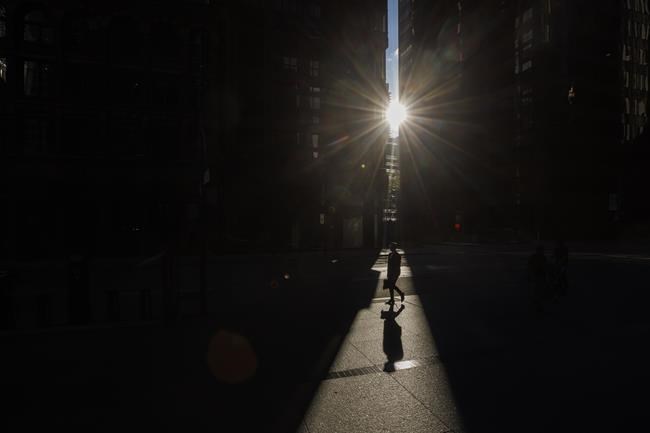OTTAWA — Many Canadians will be saying "good riddance" to 2022 as it draws to a close, a new poll suggests, with more people comparing it unfavourably to 2021 than saying it was a better year.
Polling firm Leger asked Canadians at the beginning of December what their impressions were of the past year and how their outlook was shaping up for 2023.
It found that 31 per cent of respondents felt this year was worse for them than last year and only 21 per cent said it was better. Another 46 per cent said it was about the same, and three per cent said they didn't know or preferred not to answer.
A total of 1,526 Canadians participated in the web survey from Dec. 9 to Dec. 11. It cannot be assigned a margin of error because online polls are not considered truly random samples.
Christian Bourque, executive vice president of Leger, noted that 2021 had been a pandemic year when "you basically couldn't do much."
"Everybody would have thought 2022 would have been better, right?" he said in an interview.
While the past year saw the lifting of widespread COVID-19 restrictions and millions returning to more-normal routines and schedules, Bourque said concerns about inflation and the cost of living were the chief reasons that led people to have a gloomier outlook.
"I think there's probably a level of angst in the Canadian public that we haven't seen for a while," he said.
He added that those most likely to have a negative view of 2022 were people 55 and older, who may be on fixed incomes and wondering how they will make ends meet, and those living in Atlantic Canada and British Columbia, places hit by major weather disasters.
High inflation and Russia's invasion of Ukraine early this year remain top of mind for Canadians as they think about what could come in 2023, the poll suggests.
When asked which events they were most worried about, 86 per cent of respondents cited a combination of higher inflation, interest rates and prices, while 81 per cent said they feared economic recession.
Results show 72 per cent of respondents expressed concern about the war in Ukraine expanding, and 68 per cent felt worried about "catastrophic" weather events due to climate change.
When it comes to COVID-19, the poll suggests far fewer Canadians are worried about the virus, with just over half, or 52 per cent, saying they were anxious about a resurgence.
More people, 57 per cent, were concerned about the spread of another, different virus.
While the "Freedom Convoy" protests staged in Ottawa and at several United States border crossings last winter proved to a defining moment for the country in 2022, not many Canadians appear concerned that 2023 could bring more civil disobedience.
Only 35 per cent of respondents said they felt worried about such activity near where they live, according to the poll.
Unsurprisingly, the poll suggests those most worried about prices and the economy are supporters of the Conservative Party of Canada, whose leader, Pierre Poilievre, has made both his primary focus.
It also shows that more federal Liberal and New Democrat supporters are nervous about the war in Ukraine and climate change-related weather disasters than are Tory voters.
In terms of how Canadians are thinking about 2023, the poll suggests the country is feeling more optimistic. It says 34 per cent of respondents said they feel it will be better than 2022, compared to 22 per cent who said they think it will be worse.
Another 40 per cent said they feel the new year will be about the same, and four per cent didn't provide an answer or didn't know.
This report by The Canadian Press was first published Dec. 24, 2022.
Stephanie Taylor, The Canadian Press
